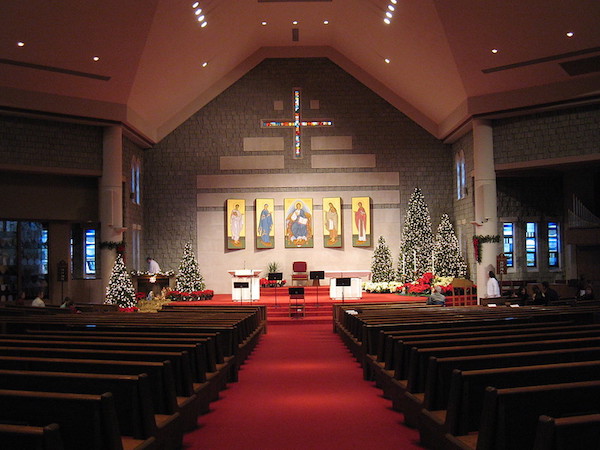It’s been a strange Christmas in many ways, the first without Covid restrictions for a while, but with lots of people getting ill with lots of different viruses, which seem to have regrouped and strengthened during the pandemic. One of my friends referred to his home as “Plague Central”, and I knew what he meant.
Still, everybody made it home for at least a while, and we had one more child than expected actually sleeping at home, because the boiler in his flat has broken and needs to be replaced. (Parental sleep improves as the number of children at home goes up.)
As always, it was wonderful to see everyone, to see and hear them together (more fun than anything else) and to catch up on the news.
People started going down with various bugs before Christmas even got going, including me, with the upshot being that I felt far less prepared than usual, and we didn’t manage to put up quite a lot of the decorations which we usually have.
I was reduced to concentrating on the food, the presents and stockings, and making it through two major church services in 24 hours with not much voice. Two of the girls did sterling service on wrapping everything, always the point where I am tempted to give up completely.
Now we are at the stage when I need to take down the bits of decorating that we did manage (cribs, the tree, and cards in various places), and I am reflecting on how we set up and pack away Christmas every year. It lends itself to introspection, with the tree decorations triggering so many memories, and your hands are busy but your mind is roving free.
But who do we do it for? If it’s only myself and a couple of my kinder children doing it, is there any point to the frills and furbelows? If the others don’t think it matters enough to help with, are we losing anything by not doing it?
Obviously, people have only limited amounts of holiday, and they have to choose for themselves how and where to spend them – but how does a family manage when the push towards a purely secular Christmas collides with family religious traditions, so that it’s not a question of presence but engagement? How can you avoid recriminations and resentment on both sides, all the more toxic if kept under wraps?
One child may have been counting on doing something the way we have always done it, but you can’t force people to join in on that basis, if they don’t want to and they don’t care enough about disappointing a sibling. How much unhappiness or resentment is negotiable?
Like many families we have managed to pass on religious practice to only some of our children, and Covid restrictions have made things even more difficult.
Looking around the church at Christmas, I don’t think we are ever going to get back to the numbers we used to see, as habits of church-going took a mortal knock for many people over the last few years. Now there are more online masses for the housebound, and this is entirely a good thing, but real-time communities have a quorum point that it is dangerous to drop below.
Looking back at my own family (on both sides), not everyone kept on going to Mass while growing up and after, but nearly everyone turned out for Sunday Mass while visiting the parents, and I think this is what has changed. A couple of our children will still come to Mass with us, but most simply don’t, and I don’t feel that I can push it.
Is this just a consequence of the unimpaired freedom of the individual, or should I have nagged more? A mother’s place is in the wrong, as a cushion and a wall-hanging remind me, but I still wonder why my children don’t realise why I think going to church matters. (That’s very dense, as a sentence, but the topic is complicated.)
Being a larger family complicates things a bit more as you can’t be unobtrusive, and this is mortifying for some people. My shyest son worries that going to church seems ostentatious (I tell him he’s overthinking here). Some of the children poke fun at the whole idea of having a pew full of them, claiming that I’m just worried about my reputation, and I hope they know that that would indeed be completely beside the point.
In the end I want them to go because they want to go, not because of me and not because they’ve been instructed to do so by anybody else.
Many times I’ve heard people say that the young return to the church when they marry and have children, but mine are not at that stage yet so I don’t know if it is true. I suspect, looking at our congregation, that it is less true than it used to be, or we’d have more young people.
Not going to church is a habit just as much as its opposite, and just as easy to fall into.
I feel that the way the Church deals with parishioners is a bit like primary education in this country – it has thought about accessibility and relevance when people are young (pictures, cribs, music, passion plays and so on). My children enjoyed primary school: it was colourful and exciting, new knowledge was presented in an accessible and attractive way, they were drawn into engagement and felt that their own experience was valued and accepted. (Naturally there were bad bits as well – bullying, an occasional unsympathetic teacher, a boring topic – but overall, the experience was positive, across several different schools.)
Similarly, the children’s liturgy at our church is popular with the children who are there, and we have picture books in baskets at the back (these were locked away during the pandemic, of course). But there isn’t much for anyone after that age until they are quite a lot older (apart from the singing groups, which welcome people of all ages), and as it’s only parish-based the groups are small and can disappear very quickly, depending upon a key member or two.
I believe that my sons and my daughters find it difficult to see the Church as a whole as relevant to their lives. It is determined to refuse even to discuss the women question (this offends the boys almost as much as the girls), and concentrates on demonising groups of people to avoid accompanying them in their messy lives, the unmarried as much as sexual non-conformists.
Scandals keep arriving from different parts of the world, and we simply wait for the next blow to fall, as it becomes clear that some senior clerics are still unable to understand why the laity thinks these things are so serious – and Jesus did too.
I don’t think that my children have given up on God, and I am comforted by knowing that he won’t ever give up on them, but their relations with the Church are more tenuous.
All we can do to encourage church attendance is to keep going ourselves, and keep praying for those who don’t. I can’t make going to church more exciting, now that the children are too big for quizzes and picture books.
I can’t make the Church revisit the whole concept of Confession or Reconciliation, although I have ideas on this after teaching a First Communion class for a few years. The sacrament is being neglected because it simply does not deliver for many people in the form we have currently, and it has been so cruelly abused in the recent past. No wonder it makes people uncomfortable.
Its form is not set in stone – it has looked very different at different stages in the Church’s history. Maybe a reinterpretation would help.
I remember my mother comforting herself with the thought that “all those Hail Marys can’t have been wasted” when one of my brothers stopped going to church, after belonging to a sodality at school.
I think one reason why people were so excited about the synod last year was the promise from the hierarchy to engage in dialogue with the rest of us, involving listening as well as telling. We’re still waiting on that, but I know that my children expect more than just being told.
The Church is running into the sand because it has decided to ignore completely half the human race and more than half of its membership. They are not leaving the Church, they simply can’t find a way in to make it work better.
I’m trying to think of a way to make Christmas work better, as well. I think next year I will organise a more formal timetable, rather than waiting for everyone to arrive and then (because of rail strikes and difficult dates) having to do everything at the last minute with everyone feeling rushed or put upon. It feels more mechanical and less spontaneous, but it might be easier for those of us who love Christmas, and it might make it simpler for those who really aren’t interested to say so in a less hurtful way (I suspect that is a pipe dream).
Or I can work out a list of other jobs which might be more attractive. Nobody said it had to be easy. With any luck next Christmas might not coincide with the worst flu season for a few years, which would also help.
In the end, we have to find a way to attract the lapsed young, because they are the future of the Church. We were the future once, but not anymore (look around your congregation).
There are plenty of good, loving people out there, but the Church is not where they want to be. How can we change that?
Kate Keefe composes musical settings for the Mass and writes about the psalms. You can follow her on Facebook, Twitter and LinkedIn .



 Loading ...
Loading ...
What do you think?
You can post as a subscriber user ...
User comments (0)